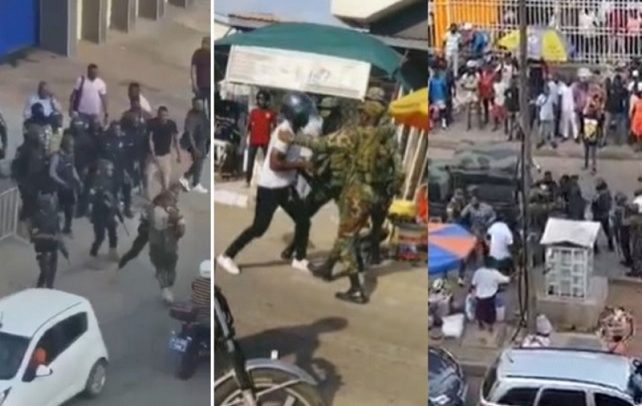The clash between a squad of soldiers and some police officers last Monday, details of which were contained in yesterday’s issue of this paper, is a worrying occurrence. Being the umpteenth time it is happening over many years points at a widening crack which must be mended.
The one under review having taken place in the Central Business District of the nation’s capital and very close to a major police formation should prompt the attention of national security managers.
We do not dispute the fact that being on patrol duties in the city of course in support of the civilian police whose duty is to provide internal security in the country, a motorcyclist in civvies could have crossed their path rather recklessly. But that should not have resulted in the altercation, especially after the rider introduced himself as a security officer too.
It was not as if the soldiers were escorting a bullion van and so working under an ambience of urgency. Upon the police officer introducing himself, the squad’s in-charge should have taken over the matter and resolved it devoid of the slaps which have triggered the incident and indeed somewhat national security.
It is instructive how little seemingly trivial matters can degenerate into levels which threaten national security. It can only be imagined what would have occurred if cool heads had not prevailed eventually.
Discipline is what rules in every institution, especially in security agencies. Without this attribute, chaos is what would occur as it did in the matter under review.
Memories of the Ashaiman incident in which the military undertook an operation on residents of the sprawling suburb are still fresh in the minds of Ghanaians and so this happening not too long after triggers questions about the safety of civilians under the circumstances.
While we are thankful that the situation was quickly resolved and the soldiers’ attempt at releasing their colleague from the custody of the police did not trigger gunshots and for that matter a degeneration of the situation, we wish to recommend that the leadership of the military and the police engage themselves over the recurring incidents of clashes between military personnel and police officers especially since soldiers are bound by both civilian law and military law. When a soldier commits an offence outside barracks, he can be arrested by a police officer under the civilian law which by drawing its authority from the constitution supersedes the military law. Mutual respect for each is an important way out under the circumstances.
Both the police and military are constitutionally responsible for the national security of the state. While the former is responsible for internal security, the latter secures the territorial integrity of the country. It is a fact that when managing national security turns challenging, the military provide support to the civilian police. Soldiers especially officers are taught the art of such joint management of internal security.
When clashes such as the Accra Central one are reported, they make us wonder whether the two can engage in joint operations when the need arises in the face of bad blood between them.
Perhaps an effort should be made yet again by the leadership of the two to fashion out an arrangement to ensure that the two respect each other and work in harmony; after all both exist to protect the country and to be at each others’ throats, bayonets fixed, in the full glare of civilians does not inure to our national interest. This is despicable.
The matter should be jointly investigated and a joint statement issued thereof.

